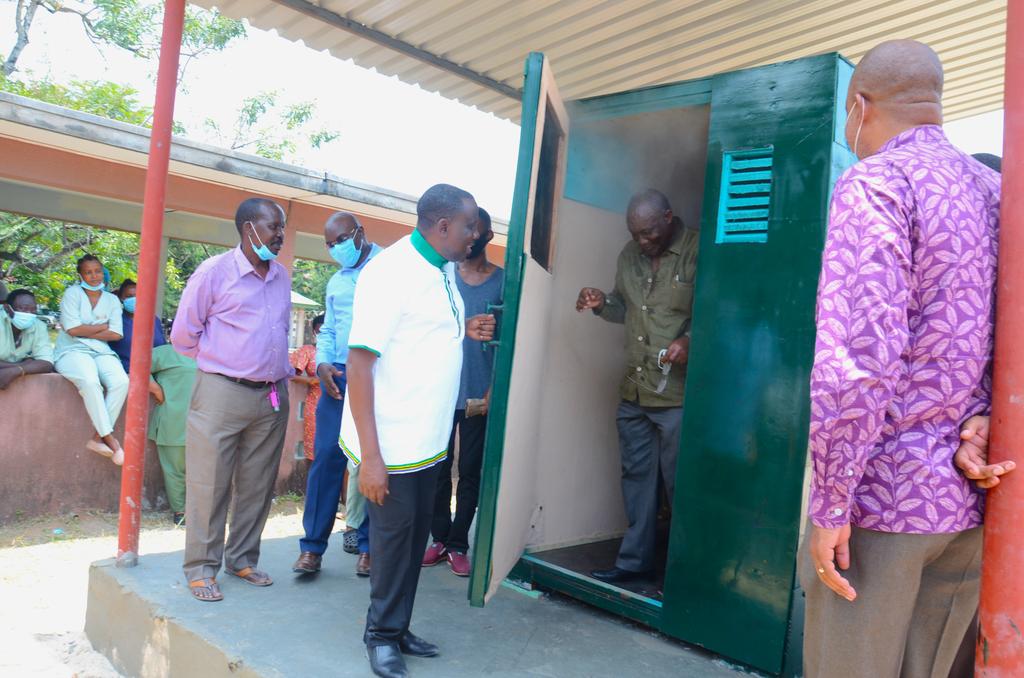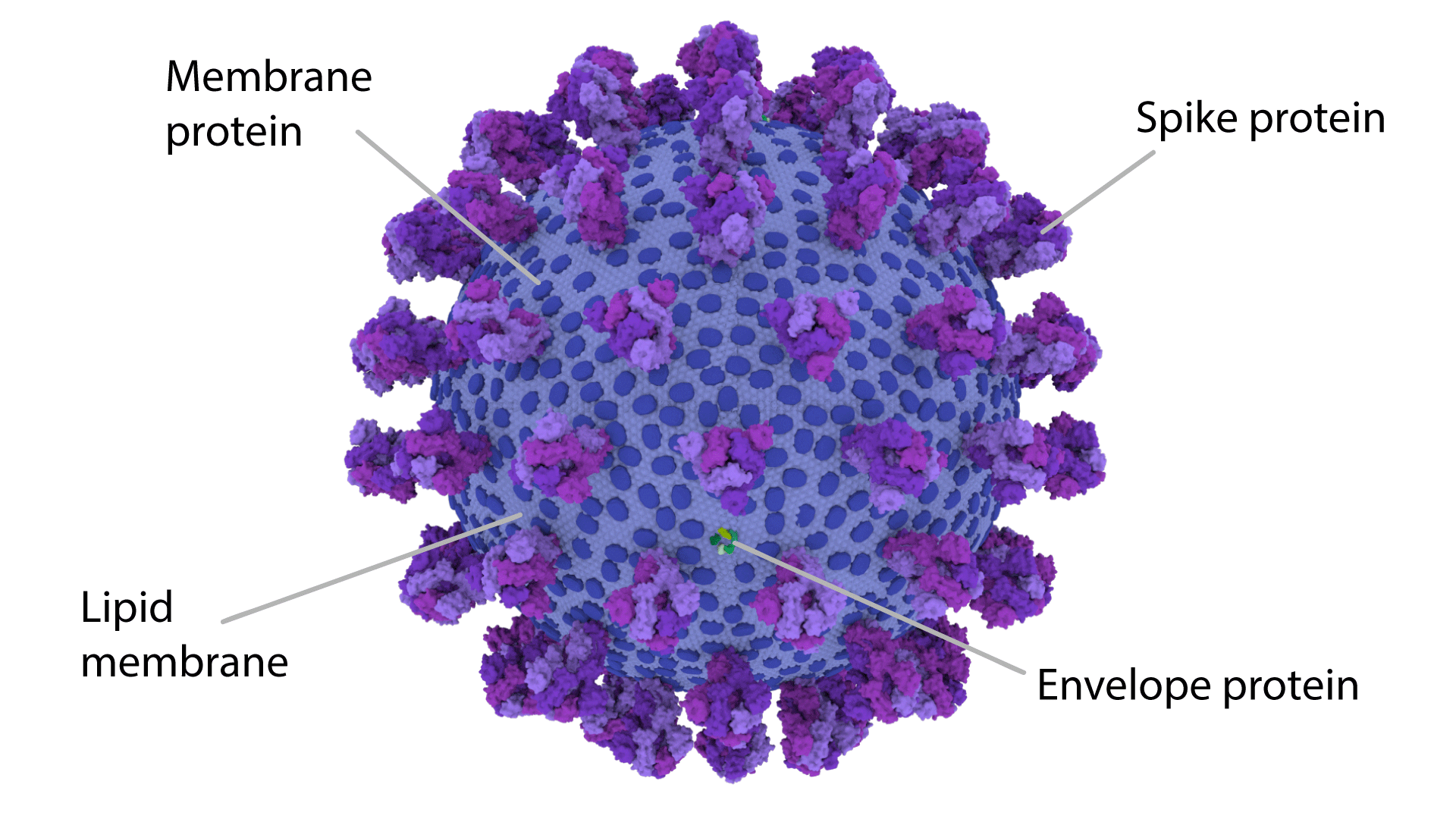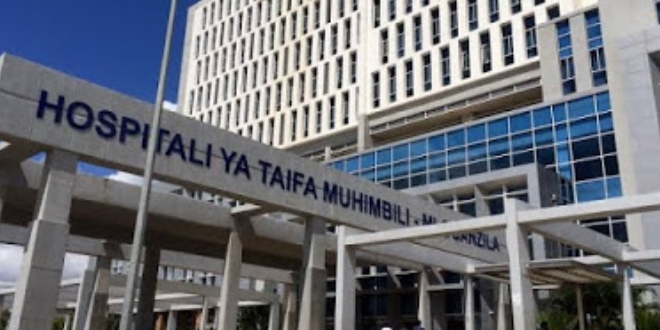Muhimbili National Hospital (MNH) has installed four steam therapy facilities each worth Sh7.5 million ($3,200) as part of the country’s coronavirus response.
However, questions abound about its safety and whether steam inhalation is a cure or treatment for COVID-19. A treatment improves the condition of a patient’s quality of life while a cure completely ends a disease.
The country’s president John Magufuli has doubted vaccines and the use of face masks in preventing coronavirus but has encouraged the use of traditional medicines—more so steam inhalation—popular in Swahili as kujifukiza.
Acting on the president’s advice and that of the Ministry of Health, MNH has introduced steam therapy facilities, christened Bupiji Sauna. One can accommodate up to six people for about 10 minutes.

The hospital’s executive director Prof Lawrence Museru said any person in need of steam therapy services can access it at a cost of Sh5, 000, equivalent to $2.16. But, he ruled out if steam inhalation can guarantee health benefits.
Why then did the hospital introduce it if there is no proven health benefits?
“We are told it helps people with some respiratory problems, including COVID-19…” Prof Museru told journalists during a launch event, urging medical experts at the hospital to use the facilities for research.
When asked by a journalist why the research was not conducted before installing the facilities in the hospital, Museru responded, “I think there is no direct answer to that…we’ve heard from people who previously used this technique, they say it helps…we want to find out by trying to use it here…”
Ahead of the launch at MNH, the Minister of Health Dr Dorothy Gwajima visited producers of traditional herbs in Dar es Salaam and urged researchers who were present, including those at the University of Dar es-Salaam to look into ways of cooperating with China, which is well-known for using traditional medicine.
“We need the hand of universities. We must work as a team. This is not just for the ministry of health. How do you [as the University of Dar-es Salaam cooperate with China?,’’ she questioned.
Read: No plans for COVID-19 vaccines in Tanzania, minister confirms
People in Tanzania have been flocking in shops selling steam machines and herbal medicine since President Magufuli encouraged it. Although the country’s health policy recognises traditional medicine, the approach has been given an upper hand during the pandemic in the country, mainly after it was promoted by the Head of State.
What can steam do to the coronavirus?
Technically, viruses are not alive but can remain biologically active in a wide range of environments, according to Tiina M Mäkinen from the Institute of Health Sciences, University of Oulu, Finland, and team.
Coronaviruses are enveloped partly by a protein and are known to be most active in cool dry conditions which are associated with increased occurrence of respiratory tract infections.

Researchers carried out a small study in Italy to establish if inhaling steam could destroy the SARS-CoV-2 virus. It was based on 10 people who had an infection of the virus—and who inhaled steam for about one hour for at least 4 days.
The study authors said the results are still preliminary, had obvious limitations and need confirmation through controlled trials. However, they stated that steam inhalation in people with mild or early infection, “might ease the consequences” of the virus.
It’s logical that the virus, when it’s on a surface, can be destroyed by heat, as argued in a report: Using heat to kill SARS‐CoV‐2 by John P. Abraham from the School of Engineering, University of St Thomas and St Paul Minnesota in the US.
But the question that remains unanswered is, can the virus be killed the same way if the heat is introduced in the human body?
Imagine heating up the cavities of your nose and sinuses with high temperatures and consider how that might be done without damaging your body cells first.
Can steam inhalation kill?
It is a rare occurrence, according to researchers who have reported two cases of children that died during the inhalation of superheated steam in a closed room.
“During the steam inhalation, the children succumbed to the effects of overheated steam and died,’’ authors suggested.
“It highlights the hazards associated with steam inhalation, if done with the whole body covered with a blanket in an enclosed space with very little air circulation and if necessary precautions are not taken. Under these conditions, traditional therapy can be risky.”
Why traditional remedies in a modern medicine hospital?
Integrating herbal medicine into mainstream healthcare has been part of the research agenda in Africa, with various authors questioning whether it can be acceptable or if the users can be open about it.
In Ghana, researchers suggested “the need for further education of health providers on the legitimacy and acceptability of herbal medicine to run concurrently with orthodox [modern] medicine.”
Since the COVID-19 outbreak, the West African country has been researching on whether herbal products and plants could be used as a treatment for the viral disease—or at least alleviate symptoms.
In Tanzania, statistics show 60-70% of the population seek healthcare to practitioners from traditional medicine. However, the sector remains highly unregulated, especially during the COVID-19 pandemic.
For months, when the country has been refuting the existence of COVID-19, people have been encouraged to depend on herbal medicine to treat what they were told are “respiratory or breathing problems.”
Read: Impact of ‘data darkness’ and why WHO wants Tanzania to report COVID-19 cases
Amid mounting public pressure that prompted the World Health Organization’s statement, the government has started encouraging other methods, such as social distancing, wearing face masks and hand hygiene.
However, local medical scientists say the ministry hasn’t provided updates of data on the extent of the COVID-19 pandemic, leaving public health interventions in paradox.

